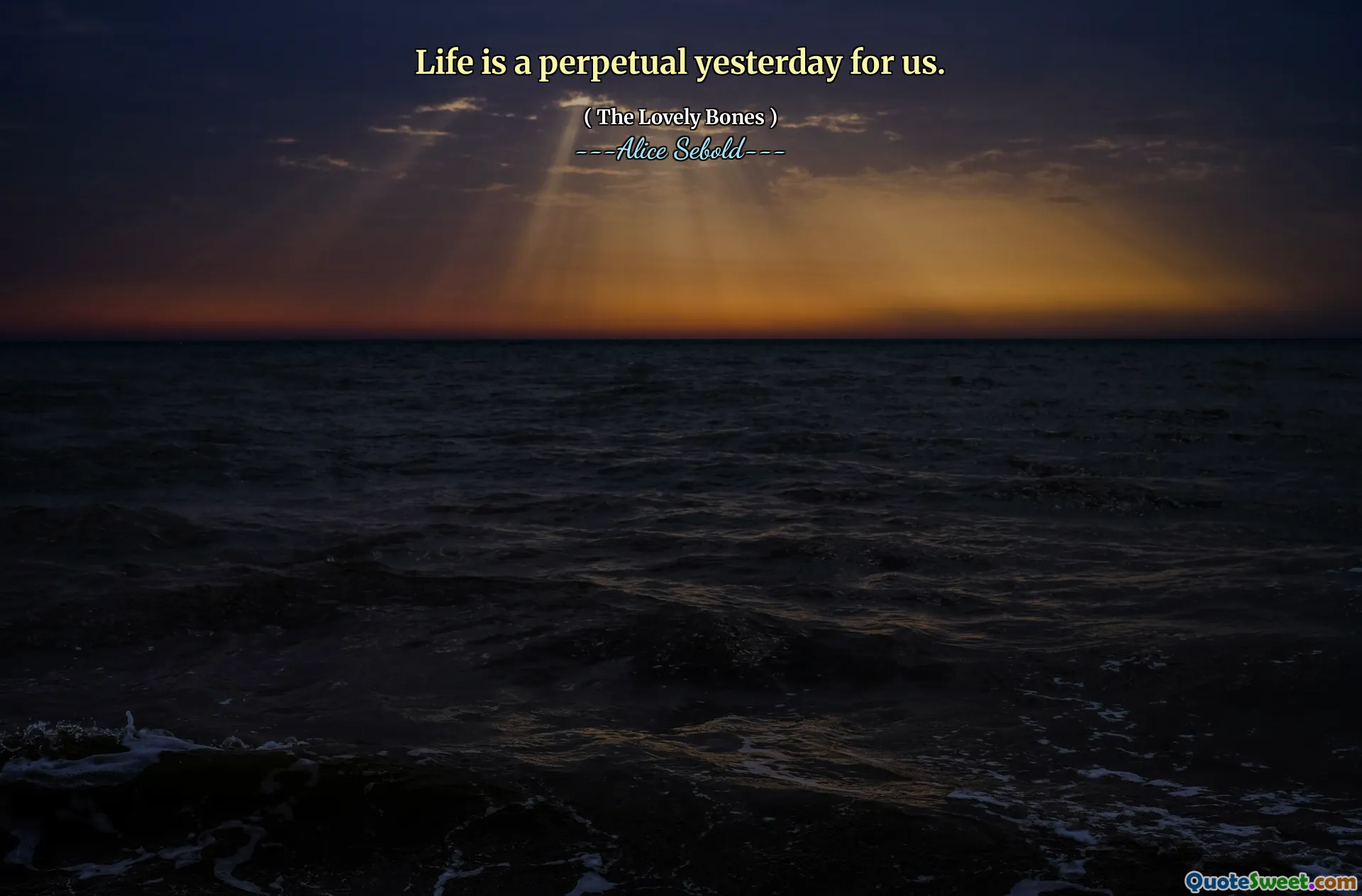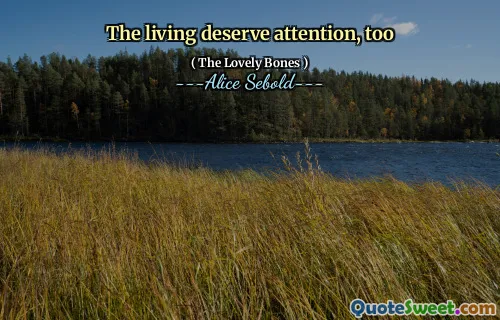
Life is a perpetual yesterday for us.
This evocative statement from The Lovely Bones probes deeply into the human experience of memory and loss. It suggests a poignant perspective where life, instead of being a continuous present or an unfolding future, is locked in the passage of past moments—"a perpetual yesterday." Such an idea resonates with how individuals often dwell on what has already occurred, whether it be joys, regrets, or traumas. It implies a temporal stagnation where the present is overshadowed by an unshakable past, reflecting on how memories shape identity and consciousness.
Reflecting further, this quote embodies the melancholic relationship many have with time. The past often holds a stronger grasp on our emotions and thoughts than the present, making life a collection of yesterdays repeated internally. It may speak to the weight of unresolved feelings or the human tendency to reminisce or ruminate, which may hinder us from fully engaging with the present or future. In The Lovely Bones, a story deeply rooted in loss and grief, the sentiment also underscores how the characters grapple with their personal histories and the haunting presence of what once was, reinforcing the theme of mourning as a persistent state.
Overall, this quote broadens our understanding of temporal perception in human life, emphasizing how memories and past experiences continuously affect and shape personal reality. It invites contemplation of how we might learn to live more in the present or use our yesterdays constructively, rather than remain trapped by them. Thus, it carries a compelling emotional and philosophical resonance worthy of deep introspection.







